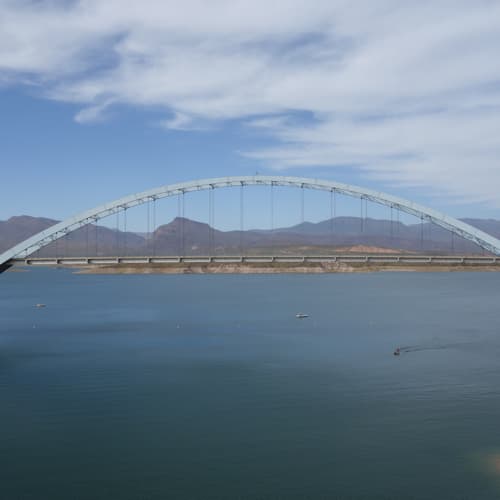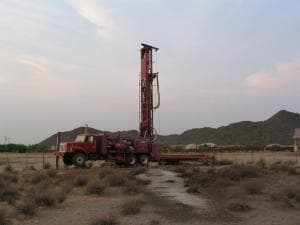AMWUA Blog
BY: Warren TenneyManaging Arizona’s Water Supplies Is Everyone’s Issue

February in the Valley of the Sun means spring weather, golf tournaments, rodeos and our State's birthday on Valentine's Day. February also means the State Capitol is abuzz with Legislators working overtime to pass hundreds of bills with the intent to improve our lives. Interest groups of all persuasions closely follow the bills moving through Legislative committees. The Arizona Municipal Water Users Association (AWMUA) is no different.
AMWUA has a long history of being engaged in bills that could impact how Arizona manages its water resources. Even if a bill doesn’t directly appear to affect our members—Avondale, Chandler, Gilbert, Glendale, Goodyear, Mesa, Peoria, Phoenix, Scottsdale, and Tempe—we’re keeping close tabs on it and weighing in as necessary.
This year, like previous sessions, Legislators have introduced water legislation that is directed at regions outside of Maricopa County. Why should we be concerned?
1. Water knows no boundaries. The AMWUA Board, comprised of elected officials from each of our member municipalities, is uniquely aware of the importance of local governance. AMWUA holds strongly that local water providers should have the ability to manage, plan, conserve, and acquire water resources for their customers that will promote economic development and quality of life.
Our members also recognize that water is an irreplaceable resource that does not obey jurisdictional boundaries. For this very reason, Arizona wisely decided to manage water as a State and through active management areas based on hydrologic regions through the adoption of the 1980 Groundwater Management Act . Knowing that managing water is most successfully accomplished on a regional basis is why the AMWUA cities are united to have one voice on water issues. From our experience, we know other regions of the State will benefit by working cooperatively on water issues.
2. AMWUA supports the 1980 Groundwater Management Act. AMWUA has always been a supporter and protector of the 1980 Groundwater Management Code. The Act has been critical to sustainable water management in the most populous areas of the state. AMWUA will step forward and express concerns about proposed legislation that could weaken the State’s groundwater management. Water legislation passed for one part of Arizona can have unintended consequences that could ripple out to other parts of the State.

3. Water is the future of our communities and economy. Long-term economic strength comes directly from actively planning and investing in water resources and infrastructure. Sometimes, an interest group may feel they are being hindered in the short-term by water rules. Yet, water fuels our economy and sustains our communities. The State’s overall long-term economic health is directly linked to our success as stewards of our water, in any region of the State.

4. We’re all Arizonans. Arizona’s reputation is based on what we do collectively as a State. Successful water management in the urban areas benefits rural Arizona, and likewise strong water management in rural areas benefits the metropolitan areas.

Governor Ducey said it best when announcing his water initiative, “All Arizonans have a role and responsibility to play in the future of this great state, and a strong water supply will be central to that future.”
The Groundwater Management Act and the rules that require an assured water supply before development can be approved are core reasons Arizona has been able to avoid a water crisis. As we see how our neighboring states struggle with water, we have been able to tout the strong position Arizona is in because of its water management policies. We are not in a similar crisis. Yet, we are at a critical juncture, where as a State we must demonstrate a willingness to continually strengthen water management throughout the State.
For 46 years, Arizona Municipal Water Users Association has worked to protect our member cities’ ability to provide assured, safe and sustainable water supplies to their communities. For more water information visit www.amwua.org .
